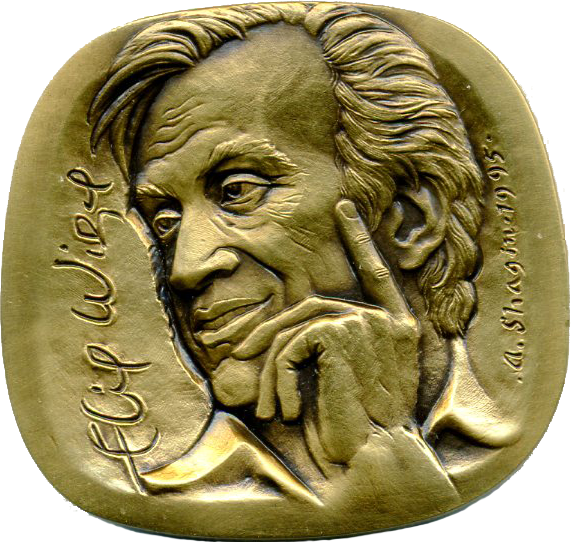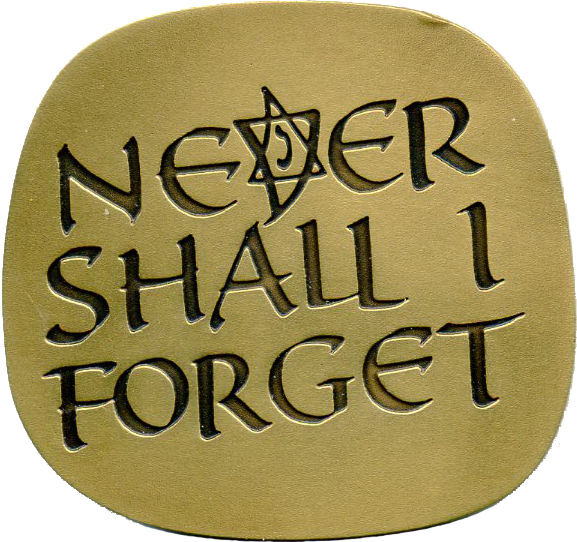 |  |
Elie Wiesel medal obverse designed by Alex Shagin, reverse designed by Mel Wacks. Struck by Medalcraft Mint in quantities of 200 bronze, 75 pure silver and 12 10kt gold. Obverse: Portrait, Elie Wiesel (signature), A. Shagin •1995• Reverse: NEVER SHALL I FORGET. 49 x 47 mm.
Elie Wiesel was born on September 30, 1928 in Sighet, a small town in Romania. His grandfather told the young Elie Hasidic tales, which later inspired Wiesel’s writings. In 1944, the Nazis deported all of Sighet’s 15,000 Jews to the Auschwitz concentration camp. Wiesel’s mother and younger sister died in the gas chambers, and his father died later on a forced march to Buchenwald.
In 1957, Wiesel joined the staff of the Jewish Daily Forward, a Yiddish-language newspaper in New York. He became a United States citizen in 1963. Not until 10 years after his release from Buchenwald, did Elie Wiesel begin writing about the Holocaust. His first biographical book And the World Remained Silent appeared in Yiddish, and four years later it was published in English as the novel Night. This was followed by over two dozen semi-autobiographical novels, plays and essays, all bearing witness to the Holocaust.
From 1972 to 1976, Wiesel was Distinguished Professor of Judaic Studies at City College of New York, and then he was appointed Andrew Mellon Distinguished Professor of the Humanities at Boston University. In 1978, Elie Wiesel was named chairman of the President’s Commission on the Holocaust, created by President Jimmy Carter, which eventually led to the building of the Holocaust Museum in Washington, D.C. He has been the recipient of numerous literary and humanitarian awards, as well as being awarded honorary degrees from more than 30 institutions.
When presenting Elie Wiesel with the Nobel Peace Prize in 1986, Egil Aavik said “Wiesel is a messenger to mankind. His message is one of peace, atonement, and human dignity. Wiesel’s commitment, which originated in the suffering of the Jewish people, has been widened to embrace all oppressed peoples and races.” In his acceptance speech, Professor Wiesel commented, “I have tried to keep memory alive. I have tried to fight those who would forget. Because if we forget, we are guilty, we are all accomplices.”